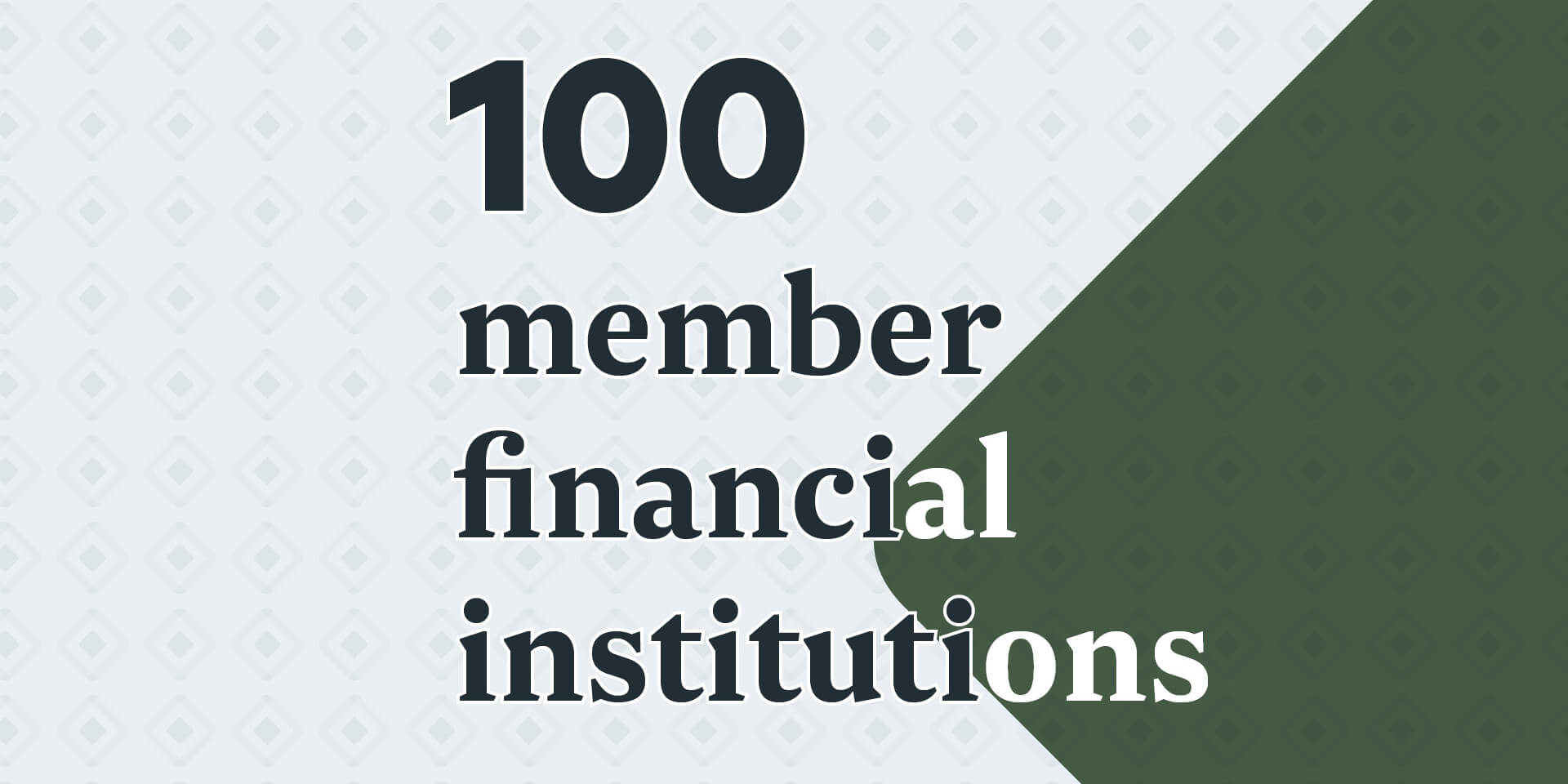
February 25, 2021 - PCAF today welcomes its 100th financial institution—Royal Bank of Canada (RBC)—as it has doubled global participation in less than 18 months and total participant assets grew more than six-fold to more than $21 trillion. PCAF achieved its participation goal ahead of schedule thanks to rapidly growing adoption by financial institutions worldwide of its Global GHG Accounting and Reporting Standard for the Financial Industry to measure financed greenhouse gas (GHG) emissions.
PCAF has set a new goal of 250 participating financial institutions for year-end 2022. The group also plans to launch coverage of the sovereign debt asset class and provide supporting case studies at the 26th UN Climate Change Conference of the Parties (COP26) this November. The PCAF Standard currently provides methods to measure financed emissions of six asset classes: listed equity and corporate bonds, business loans and unlisted equity, project finance, commercial real estate, mortgages, and motor vehicle loans.
"The accelerating global adoption of the PCAF Standard by financial institutions of all sizes from New York, Amsterdam and Seoul to Nairobi, Quito and Kathmandu underscores the Standard’s status as the definitive global standard for GHG accounting of financed emissions,"
Giel Linthorst, Executive Director of the PCAF Secretariat and Director at Guidehouse.
"Joining PCAF and working with our peers is an important part of our commitment to net-zero lending by 2050 and supporting the principles of the Paris Agreement. The PCAF Standard for measuring GHG emissions in lending portfolios is an essential tool for the management and reporting of climate-related risks and opportunities."
Graeme Hepworth, Chief Risk Officer, RBC
Creating a truly global, harmonized Standard requires input from and adoption by stakeholders from all corners of the globe. The Core Team responsible for writing the first edition of the Standard consisted of 16 financial institutions representing ten countries on four continents. This team will expand this year to include even more international perspectives.
PCAF had two primary objectives when it launched globally in Sept 2019. The first was to develop a universal, harmonized and transparent Standard for measuring and disclosing GHG emissions of loans and investments, known as financed emissions. PCAF launched the Standard last November, the first ever with methodologies written by and for financial institutions to be built on and backed by the Greenhouse Gas Protocol, the world’s foremost provider of trusted GHG accounting standards.
PCAF’s second primary objective was to expand participation from 50 to 100 financial institutions worldwide, which it achieved ahead of schedule. Each institution commits to using the Standard to measure and disclose their financed emissions.
Thus far, no other standard or methodology has succeeded in aligning the GHG accounting rules of the financial industry to create the transparency and comparability across financial institutions that investors and stakeholders have long sought.
Financial institutions have been drawn to PCAF’s utility, robustness, clarity, and the synergies it creates with other keystone climate initiatives such as the Taskforce on Climate-related Financial Disclosures (TCFD), CDP and the Science-Based Targets initiative (SBTi). The entire climate finance ecosystem is strengthened with each new PCAF member as financed emissions feed into every other step of a financial institution’s climate journey to alignment with the Paris Agreement.
About the Partnership for Carbon Accounting Financials (PCAF)
PCAF began in the Netherlands in 2015 under the leadership of ASN Bank with a handful of Dutch financial institutions, expanded to North America in 2018, and launched globally in September 2019. Now 100 banks and investors (as of Feb 25, 2021) have subscribed to the PCAF initiative. PCAF institutions work together to jointly develop the Global GHG Accounting and Reporting Standard for the Financial Industry to measure and disclose the greenhouse gas emissions of their loans and investments. By doing so, PCAF institutions take an important step to assess climate-related risks and opportunities, set targets in line with Paris Climate Agreement and develop effective strategies to decarbonize our society. For more information visit: https://carbonaccountingfinancials.com/
Media inquiries please contact:
Giel Linthorst, Executive Director PCAF Secretariat
info@carbonaccountingfinancials.com